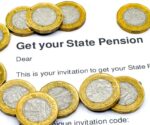Cash ISA reform ‘back on table’ for Budget – here’s what Reeves could change | Personal Finance | Finance
Reeves is reportedly reducing the annual cash limit from £20,000 to £10,000 (Image: Getty)
Chancellor Rachel Reeves is reportedly considering a dramatic shake-up of Britain’s savings landscape, with the annual Cash ISA allowance set to be cut in half in her upcoming Autumn Budget.
According to the Financial Times, Treasury officials are considering plans to reduce the annual cash limit from £20,000 to £10,000 as part of a broader effort to encourage more people to invest in the stock market.
The move would revive an idea first floated earlier this year, which ministers framed as part of their ambition to build a more dynamic “investment culture” across the UK. While no final decision has been made, several options are understood to be on the table – and speculation has intensified in recent weeks that a firm announcement could come in November’s Budget.
The change would be significant. More than 14 million people in the UK currently hold over £10,000 in cash savings, and since Reeves became Chancellor in July 2024, over £59 billion has been invested in cash ISAs.
For many households, these accounts are a simple and trusted way to shelter savings from tax. The current system allows people to save or invest up to £20,000 a year tax-free, with complete freedom to allocate that amount between cash and stocks and shares.
Financial experts have been quick to react to the revived plans, with several describing the proposal as a thinly veiled revenue-raising exercise.
Rob Mansfield, an independent financial adviser at Rootes Wealth Management, said the move “looks like nothing more than a tax grab”. He argued that many savers simply prefer cash ISAs over stocks and shares, and that lowering the limit would have little impact on their behaviour. “If the limit is reduced, we’d likely see cash held where the interest is taxed,” he said. “If the government are serious about wanting people to invest, then tell people of the benefits and rewards of long-term saving rather than trying to force them into investing for nationalistic reasons.”
READ MORE: The ‘loophole’ nobody’s spotted if Rachel Reeves makes £20,000 Cash ISA change
READ MORE: Cash ISA limits ‘set to be slashed’ in Rachel Reeves U-turn
Luke James, tax director at Gravitate Accounting, warned that the policy could have unintended consequences. “After nearly a decade without inflation adjustment, any sudden change could appear punitive to cautious savers and weaken trust in fiscal policy,” he said. “While Stocks and Shares ISAs offer higher potential returns, they involve volatility and assume a level of financial literacy not shared by all. Many prefer Cash ISAs for their simplicity, security, and tax efficiency. Reducing the limit may push savings into taxable accounts rather than equities, undermining the policy’s intent.”
James also pointed out that with the Government’s previous “British ISA” proposal scrapped earlier this year, there is no guarantee that redirecting funds away from cash would lead to more money flowing into UK businesses. “Without broader incentives, education, and a clear long-term investment strategy, the reform risks short-term gains at the expense of lasting confidence and growth,” he added.
The potential impact on ordinary savers is clear. Antonia Medlicott, founder and managing director of Investing Insiders, estimated that around 30% of savers would need to move their cash to avoid paying tax. “The big advantage of saving through an ISA is that not a penny of the interest you earn can be taxed,” she said. “If Rachel Reeves is planning a cut to the annual allowance, that could mean the roughly 30% of adults who use Cash ISAs may soon need to find a new home for their savings – or face a tax bill.”
Medlicott also questioned whether the policy would achieve its stated goal. “Rachel Reeves is rumoured to be using this move to cajole more people into investing. But ISAs aren’t the only way to avoid tax on cash. If you’re a basic rate taxpayer, you can also earn £1,000 of tax-free interest per year in an ordinary savings account. You’d need to be holding over £33,000, earning 3%, to exceed that allowance. So, if the Chancellor goes ahead, we may just see a mass exodus of people moving their ordinary savings instead. I fail to see how that helps the Chancellor achieve her goal of increasing the flow of investment into UK equities.”
Jeremy Cox, head of strategy at Coventry Building Society, said the simplicity of ISAs was one of their biggest strengths – and warned against making them more complex. “Upsetting this balance by reducing the cash ISA allowance is going to make it far more complex in one fell swoop,” he said. “In nudging people toward investing more, the Chancellor needs to be careful she doesn’t throw the baby out with the bathwater and discourage people from building up their cash savings too.”
Others suggested there could be ways for savers to adapt if the rules change. Rob Morgan, chief investment analyst at Charles Stanley, noted that limiting Cash ISAs could lead some to use short-dated gilts or money market funds within a Stocks & Shares ISA to replicate “cash-like” returns while staying within a tax-sheltered wrapper. That would, however, require greater knowledge and potentially financial advice.
Ritesh Sood, founder of Soul Mortgages, took a more optimistic view of the policy. “While the potential reduction of the Cash ISA allowance has sparked debate, it could ultimately guide the public towards a more robust, diversified savings strategy,” he said. “The Government’s objective is to stimulate the UK stock market by channelling more capital into investments, which could potentially flow directly into UK businesses.”
Kevin Mountford, co-founder of Raisin UK, said halving the allowance would be “a major shake-up for savers”. He warned that cutting the limit risks undermining public confidence in one of the UK’s simplest savings vehicles. “At a time when more people than ever are paying tax on their savings interest, restricting access to tax-free cash savings could feel like a step backwards for ordinary households,” he said. “It has taken considerable effort to build a stronger savings culture in the UK, and it feels as though the Government now sees savers and pensioners as easy pickings.”
Mountford added that while investment can yield higher returns over the long term, it isn’t suitable for everyone. “For many, particularly older savers or those building an emergency fund, a cash ISA is not about chasing returns but about peace of mind,” he said. “Any reform needs to balance the push for growth with the need for financial inclusion.”
Denis Cornwall, direct channel manager at Wesleyan, echoed that sentiment but said reform could still be an opportunity if handled carefully. “Any steps to encourage a stronger culture of retail investing are welcome if they help improve financial wellbeing,” he said. “For savers, the key will be ensuring investments align with personal goals and tolerance for factors like risk and volatility – especially if they’re thinking about moving from Cash ISAs to Stocks & Shares ISAs for the first time.”
The Government has not confirmed whether any ISA changes will feature in the Budget, though Treasury sources have repeatedly emphasised that any reforms would not be aimed at raising revenue.
Martin Lewis, founder of MoneySavingExpert, questioned that claim on social media this week. Responding to a comment that wealthy savers should pay tax on their interest, Lewis wrote: “That’s a different point. The idea isn’t to raise revenue as noted, it’s to encourage investing.” He added that cutting the cash ISA limit “would simply piss millions of, often older, people off and I doubt will change the dial on investing.”








